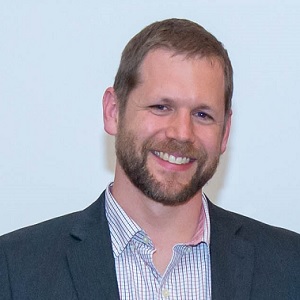Cognitive Science/ Cognitive Processes
(PS4-85) Gaining Clarity on the Malleability of Emotion Differentiation: A Novel Study Design Examining the Efficacy of ED Practice

Ella S. Sudit, M.A. (she/her/hers)
Clinical Psychology PhD Student
American University
Washington, District of Columbia, United States- PZ
Paloma K. Zabala, B.A.
Doctoral Student
American University
Chevy Chase, Maryland, United States - DO
Daniella Olivares, B.A.
Daniella will be attending VCU to obtain her PhD in clinical psychology beginning in Fall 2024.
American University
Seekonk, Massachusetts, United States 
Nathaniel R. Herr, Ph.D.
Associate Professor
American University
Washington, District of Columbia, United States
Author(s)
Co-Author(s)
Emotion differentiation (ED), or the ability to identify and understand one’s own emotions in a nuanced manner, has been shown to be a transdiagnostic mechanism underlying psychological well-being and mental health. An important question in ED research is whether it is a trait or skill. If it is a skill, thus modifiable, it could be a significant tool in treatment. Recent research has alluded to its potential modifiability, specifically research has shown that improving emotion knowledge and practicing reflecting on daily experiences can improve ED ability. However, little research has focused on whether practicing ED itself could be a factor in influencing ED ability. The aim of the present study is to experimentally test if engaging in ED practice will increase ED ability over time and whether this active practice will impact the proven buffering effects of ED on mental health symptoms, especially in the context of stress. The hypothesis and analyses were all pre-registered prior to data-collection.
The present study recruited 80 participants from the community. In order to measure both within- and between-person effects of ED practice, participants were randomly assigned to two different conditions, active or passive. Participants in the active condition completed a baseline session in which they completed a lab-based task of ED, measures of internalizing symptoms and current and lifetime experiences of stress. Immediately after the baseline session, active participants completed a six-day ED practice in which they were prompted at random timepoints each day to reflect and differentiate their emotions. They then completed a follow-up session which included the same measures as the baseline a week after the initial session. For participants in the passive condition, participants completed the same baseline session, then had a passive week of doing nothing, then completed a secondary baseline where they completed the same measures, then the active ED practice phase, and finally completed the same follow-up session.
Initial, pre-registered analyses yielded results that did not show improvement of ED ability over time, at either the within or between-person level. In gaining further clarity of the potential malleability of ED ability, follow-up exploratory analysis will examine potential moderators that give a more nuanced understanding of the contexts in which ED practice can improve ED ability. Based on existing research, weekly stress and stressful life events are significant factors of ED ability so understanding how these factors influence ED practice could be meaningful in understanding when ED practice is important. This research, both the topic and the unique study design could provide ideas for future research on the malleability of ED ability overall and increase understanding of the context and predictors of ED ability and malleability. In addition, this work could be an important factor in therapy and improve understanding about how ED ability can be implemented in different treatment modalities, depending on the experiences and presenting concerns of the client.

.png)
